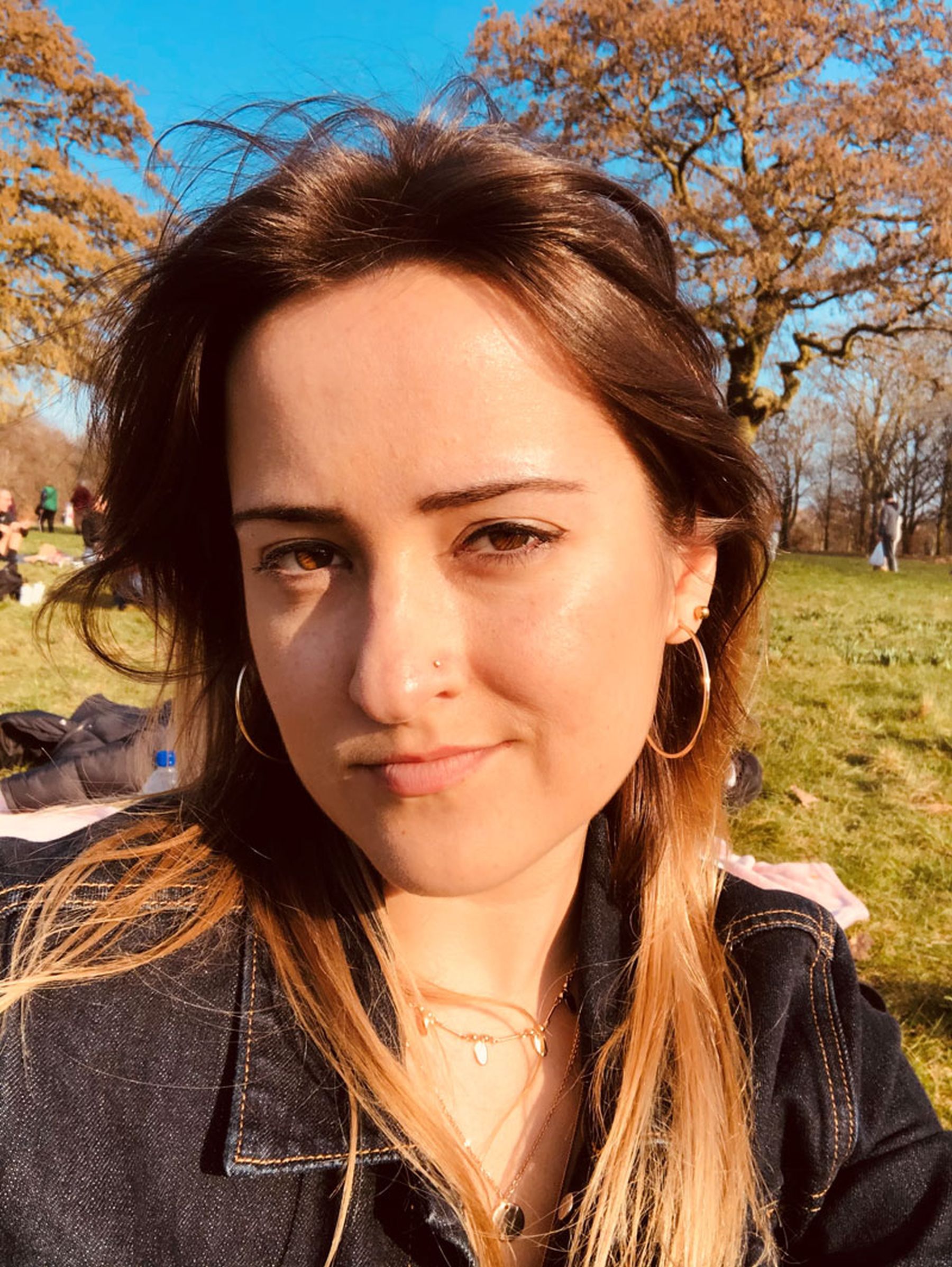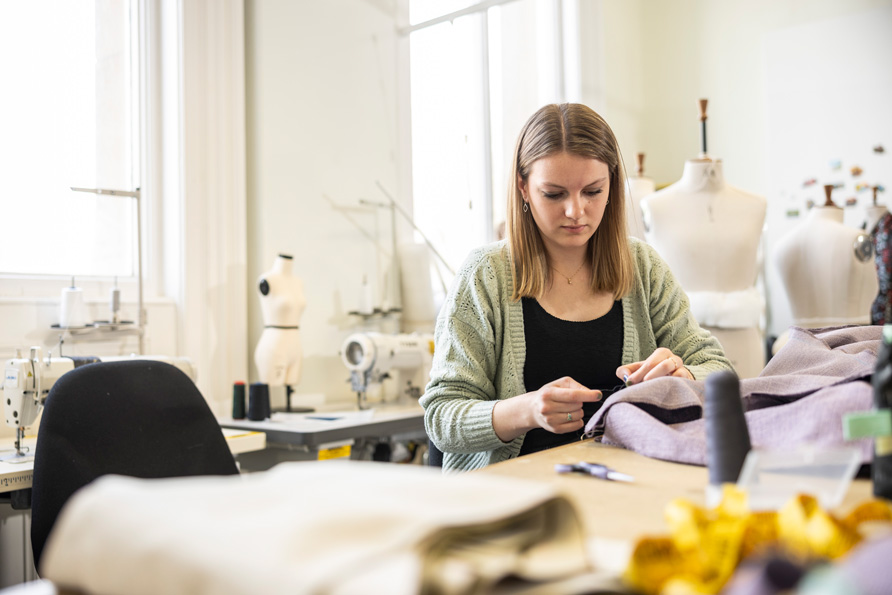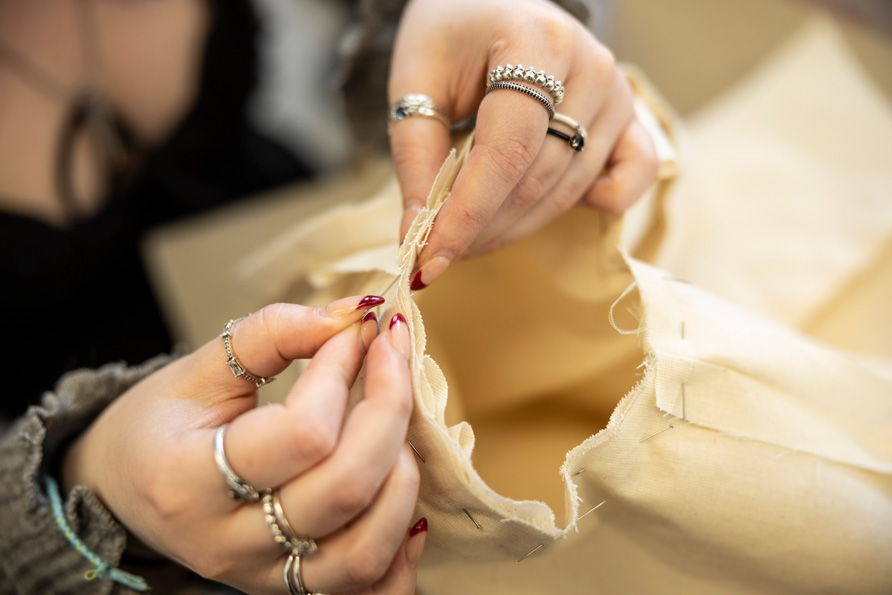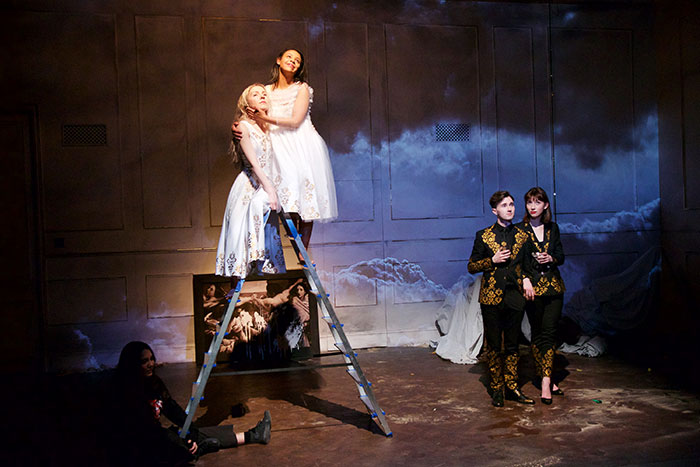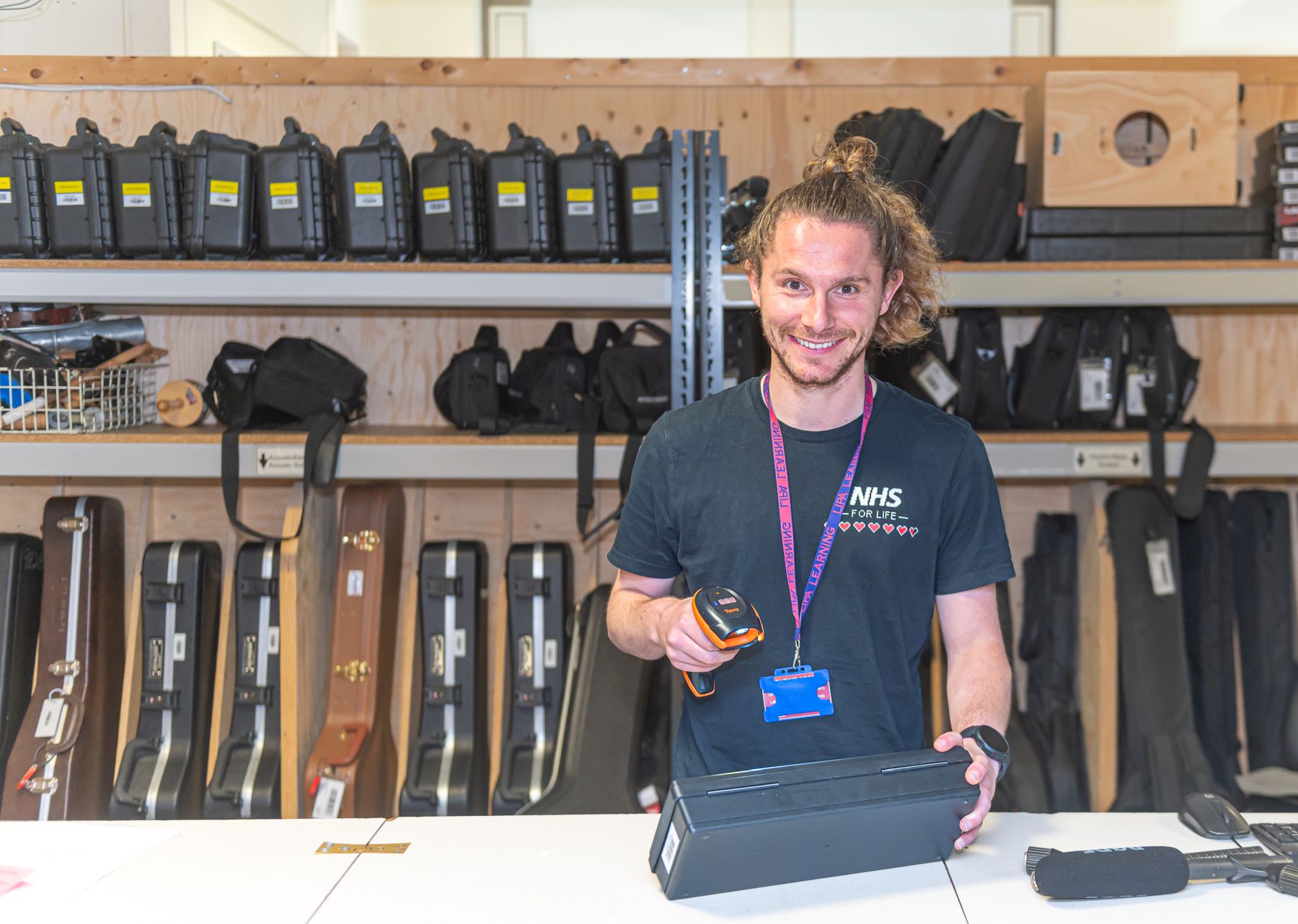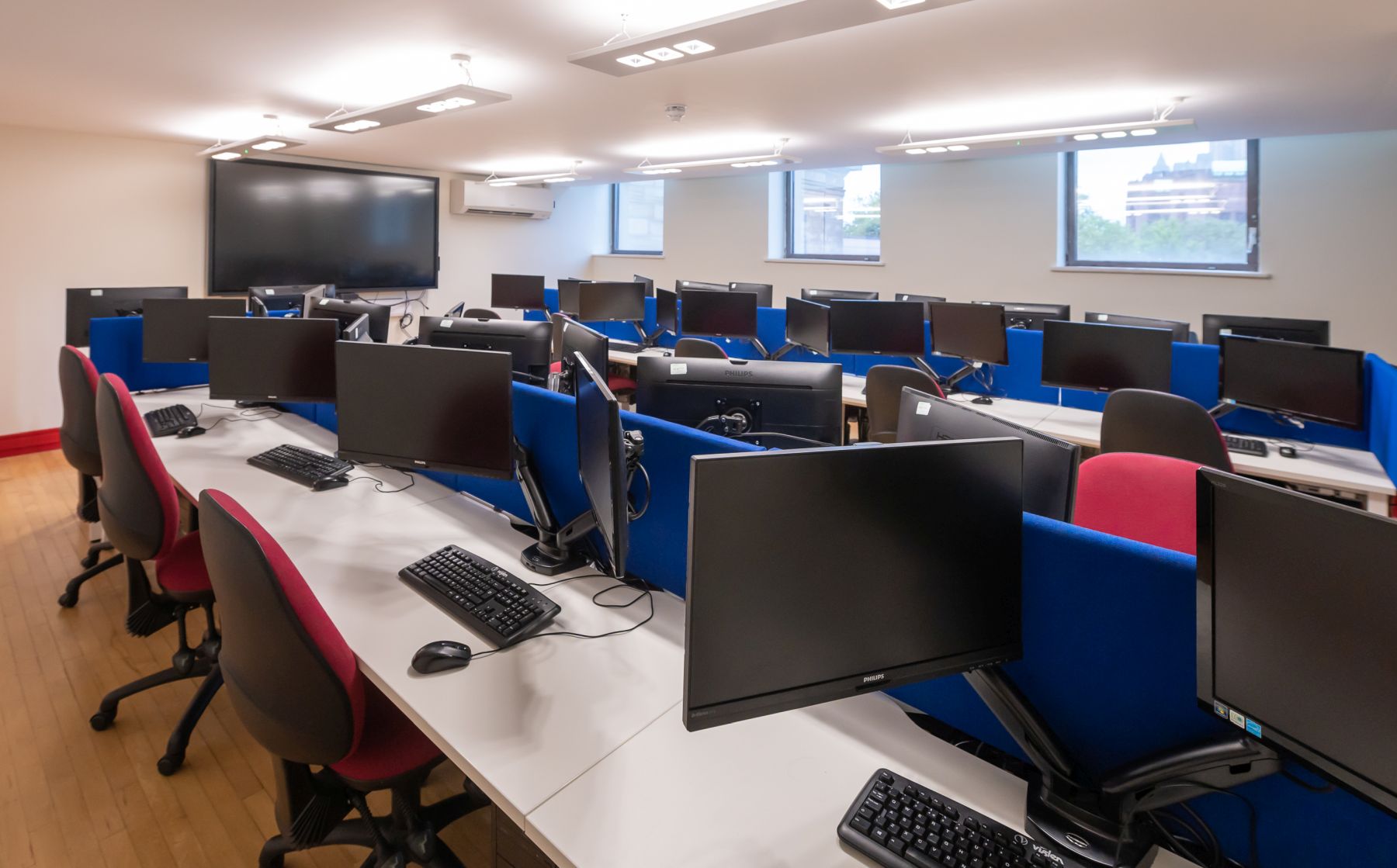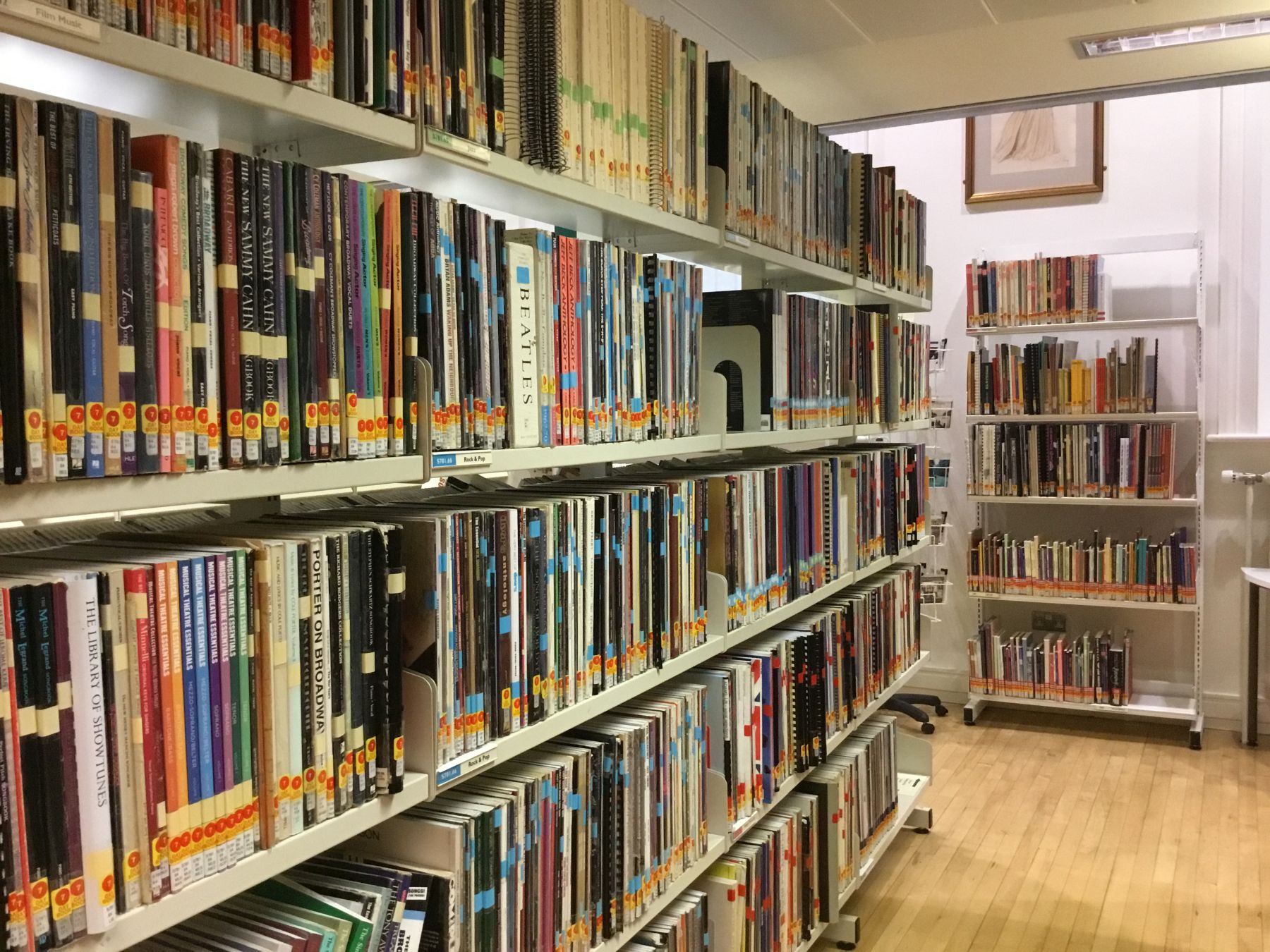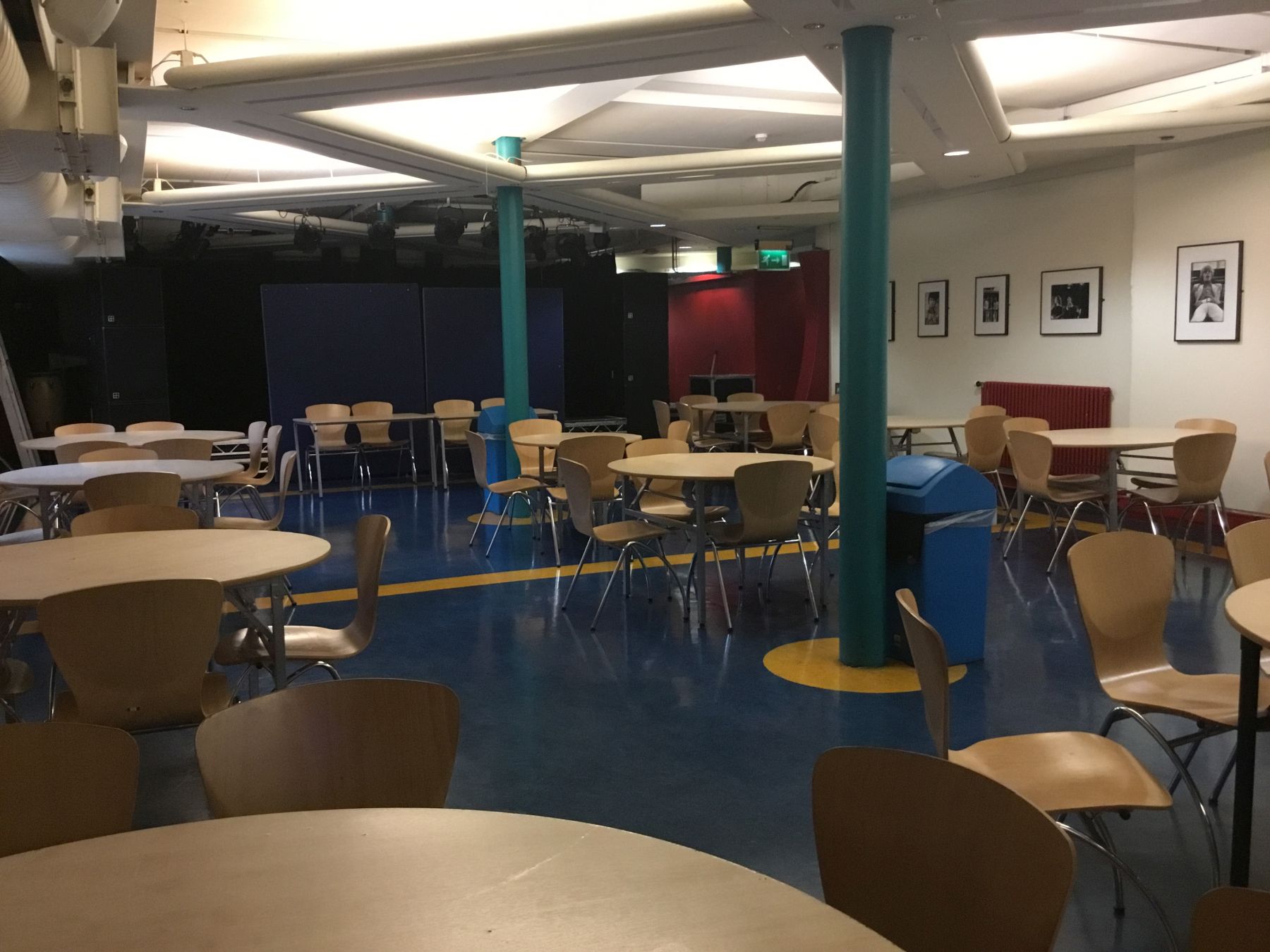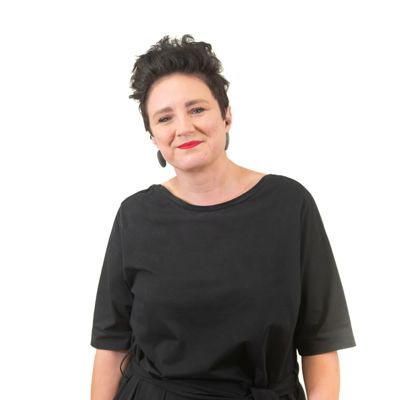Course overview
This programme is no longer recruiting for new students.
Whether you’re a costume maker looking to advance your design interpretation and construction skills, or a designer keen to explore innovative three-dimensional approaches to costume, our hands-on practical course provides you with a holistic postgraduate experience.
Our range of modules enable you to explore your practice through research and experimentation as you develop your individualised and specialised approach to costume realisation.
Opportunities for working on productions also help you identify professional frameworks for collaboration, research and employment. By the end of the course, you graduate as an accomplished, resourceful and creative costume practitioner and researcher with a strong portfolio of practice which is showcased in an end of year exhibition..
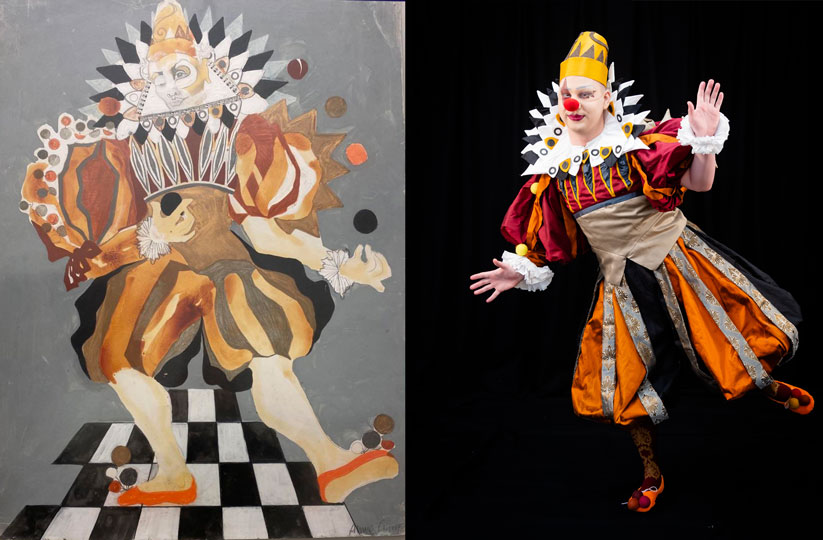
Course highlights
- Cultivate your specialised costume practice as a maker, designer or researcher. Whether your background is in costume, textiles, fashion, design for theatre and performance, this course enables you to deepen your practical and critical engagement with costume
- Realise your creations by working in a range of performance areas from theatre and ballet to film and digital environments, and from music festivals to historical reenactments and cosplay
- Connect with industry professionals and contribute to the flourishing field of costume research
- Benefit from our exclusive spaces and resources, including all materials and haberdashery included in your course fees
System.AggregateException: One or more errors occurred. (Object reference not set to an instance of an object.) ---> System.NullReferenceException: Object reference not set to an instance of an object. at AspNetCore.Views_Partials_grid_editors_DocTypeGridEditor_icons.ExecuteAsync() in C:\inetpub\wwwroot\lipa\Views\Partials\grid\editors\DocTypeGridEditor\icons.cshtml:line 33 at Microsoft.AspNetCore.Mvc.Razor.RazorView.RenderPageCoreAsync(IRazorPage page, ViewContext context) at Microsoft.AspNetCore.Mvc.Razor.RazorView.RenderPageAsync(IRazorPage page, ViewContext context, Boolean invokeViewStarts) at Microsoft.AspNetCore.Mvc.Razor.RazorView.RenderAsync(ViewContext context) at Microsoft.AspNetCore.Mvc.ViewComponents.ViewViewComponentResult.ExecuteAsync(ViewComponentContext context) at Microsoft.AspNetCore.Mvc.ViewComponents.DefaultViewComponentInvoker.InvokeAsync(ViewComponentContext context) at Microsoft.AspNetCore.Mvc.ViewComponents.DefaultViewComponentHelper.InvokeCoreAsync(ViewComponentDescriptor descriptor, Object arguments) --- End of inner exception stack trace --- at System.Threading.Tasks.Task.ThrowIfExceptional(Boolean includeTaskCanceledExceptions) at System.Threading.Tasks.Task`1.GetResultCore(Boolean waitCompletionNotification) at Our.Umbraco.DocTypeGridEditor.Helpers.DocTypeGridEditorHelper.RenderDocTypeGridEditorItem(IViewComponentHelper helper, IHtmlHelper htmlHelper, IPublishedElement content, String editorAlias, String viewPath, String previewViewPath, Boolean isPreview) at Our.Umbraco.DocTypeGridEditor.Helpers.DocTypeGridEditorHelper.RenderDocTypeGridEditorItem(IViewComponentHelper helper, IHtmlHelper htmlHelper, Object model) at AspNetCore.app_plugins_doctypegrideditor_render_doctypegrideditor.ExecuteAsync() in C:\inetpub\wwwroot\lipa\app_plugins\doctypegrideditor\render\doctypegrideditor.cshtml:line 4 at Microsoft.AspNetCore.Mvc.Razor.RazorView.RenderPageCoreAsync(IRazorPage page, ViewContext context) at Microsoft.AspNetCore.Mvc.Razor.RazorView.RenderPageAsync(IRazorPage page, ViewContext context, Boolean invokeViewStarts) at Microsoft.AspNetCore.Mvc.Razor.RazorView.RenderAsync(ViewContext context) at Microsoft.AspNetCore.Mvc.ViewFeatures.HtmlHelper.RenderPartialCoreAsync(String partialViewName, Object model, ViewDataDictionary viewData, TextWriter writer) at Microsoft.AspNetCore.Mvc.ViewFeatures.HtmlHelper.PartialAsync(String partialViewName, Object model, ViewDataDictionary viewData) at AspNetCore.Views_Partials_grid_editors_base.ExecuteAsync() in C:\inetpub\wwwroot\lipa\Views\Partials\grid\editors\base.cshtml:line 11
What You Will
Study
Research Skills
This module provides the basis for the creation of innovative and original work in your chosen field of costume realisation. It prepares you for the development of your final Practice Dissertation project as you investigate potential areas for costume related practice research.
You are introduced to the skills required to conduct a postgraduate practice research project, through consideration of who you are as a costume practitioner and researcher, and your understanding of the role of performance costume.
Costume Skills
This module provides you with the opportunity to expand your portfolio of costume realisation expertise. With a focus on creative pattern cutting and construction techniques, you address your own professional development requirements, identifying areas for progress.
Through the production of a costume artefact, or sampling portfolio, you apply the skills and knowledge you have acquired during the module.
Experimentation and Development
This module consists of a masterclass programme delivered by a range of educational and industry professionals from a variety of specialist costume realisation areas. During each masterclass you conduct practical research through guided experimentation in a range of costume specialisms.
The masterclass programme is followed by the completion of an individualised personal project where you are supported as you explore one of the costume specialisms in more depth, further advancing your practice.
Practical work is supported by reflection on your developing practice and research into related historical and contemporary contexts.
Professional Practice
In this module you participate in a series of industry workshops, investigating opportunities, roles and performance areas that relate to the costume realisation industry. You then apply the skills you have learned on the course so far to realise costumes for a public LIPA production. You collaborate closely with performers and the wider production team, and play a full role in the rehearsal and production process.
This experience enables you to reflect on your interests, strengths and skillset as you consider future employment possibilities and further professional development opportunities.
Practice Dissertation
This module sees you complete an original practice research project in response to your own costume realisation interests.
Following the submission of a proposal, you apply a range of practice research methodologies to develop experimental practical work. This informs your final, fully realised costume outcome and is supported by self-reflection & critical analysis.
The practical and reflective work you submit will advance your own costume practice, support your professional development and have the potential to contribute to the positive development of industry practices.
Student showcase
Explore creations from recent MA students
How You Will
Study
-
Workshops
-
Lectures
-
Seminars
-
Productions
-
Exhibitions
-
Independent study
-
Group Work
-
Masterclass
How You Will Be
Assessed
Assessment revolves around your development as a creative researcher and practitioner. You document, analyse and defend your work. Assessment includes portfolios, verbal presentations, presentation of made work, as well as critical and reflective analysis. There are also oral examinations.
Practical/written work ratio
80% practical work / 20% reflective work
Alternative formats for written/ reflective work include podcasts, presentations, vivas, videos blogs, journals etc.
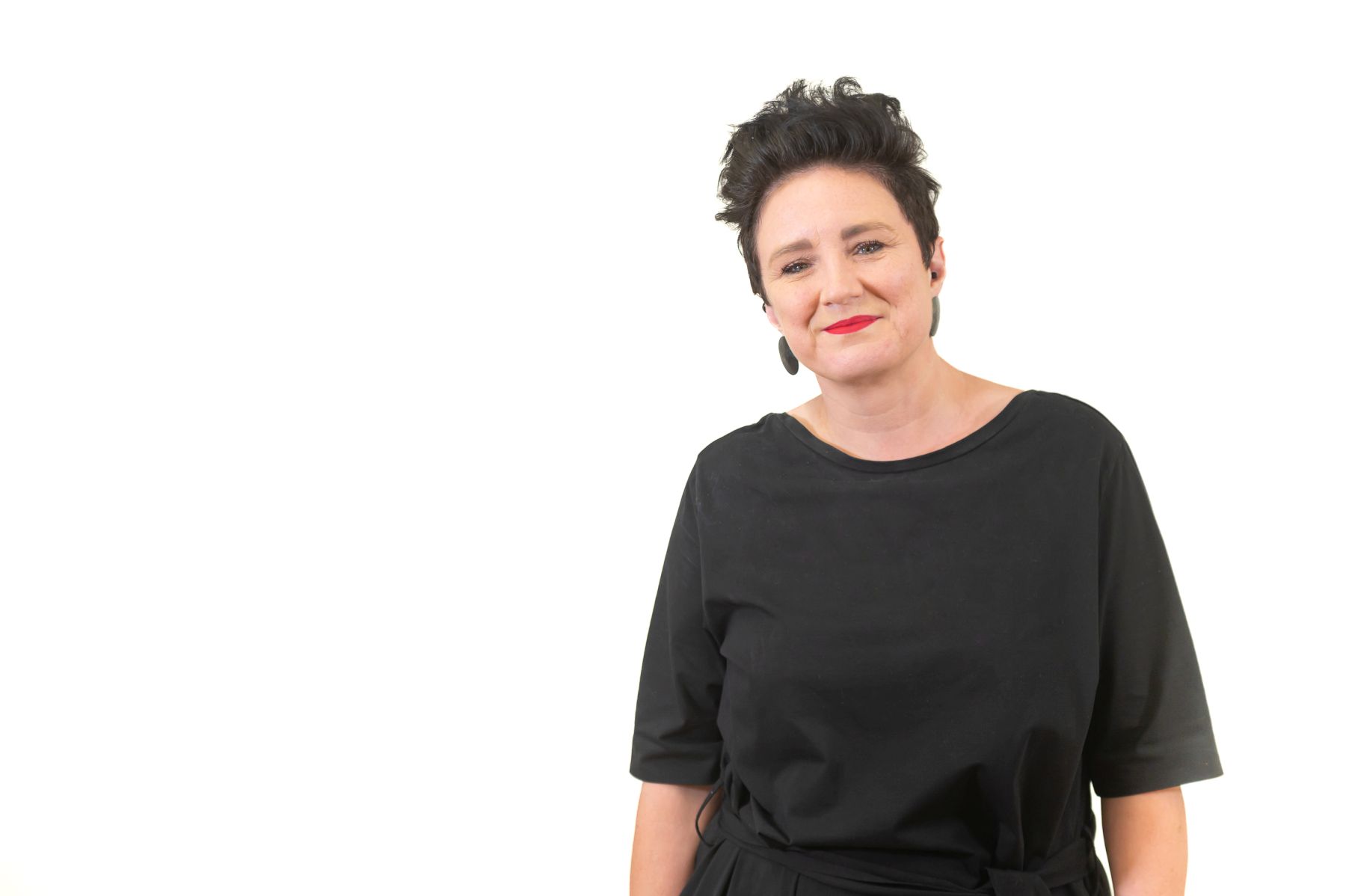
Toni Bate
Programme Leader: MA Costume Design & Making
After graduating from Liverpool’s prestigious Mabel Fletcher course in 1994, Toni worked for many years as a costume maker, tailor and wardrobe supervisor for theatre, film and television. Theatre credits include the Olivier Award-winning Shockheaded Peter (Albery Theatre, London) as well as work for Liverpool Everyman & Playhouse Theatres, Theatr Clwyd, Contact Theatre, Manchester, Dukes Theatre, Lancaster, Leeds Playhouse and Derby Playhouse. TV and film credits include Gormenghast (BBC), The Lost Prince (BBC), Pride & Prejudice (Joe Wright), Revengers Tragedy (Alex Cox) and Vanity Fair (Mira Nair).
Prior to returning to LIPA to develop and lead the MA Costume Making programme Toni was a costume construction lecturer on the BA (Hons) Costume with Textiles degree at the University of Huddersfield. Other further and higher education roles include head of wardrobe, wardrobe supervisor and costume maker at LIPA, specialist costume technician at Edge Hill University, costume lecturer at The City of Liverpool College and costume designer and wardrobe supervisor at Arden School of Theatre in Manchester. Toni is also a fellow of the Higher Education Academy.
Toni is an active researcher in the field of costume construction. Her most recent research focuses on historical theatrical costume with an emphasis on reconstruction and the social history of costume making. Her masters by research examined the development of textiles, decoration and embellishment for period costume interpreted for live performance, while other publications have explored the development of allegorical theatrical costume from the Middle Ages to the early European court masques, the concept of the costume store as a living archive and the implications of using historical dress as performance costume.
Publications
Bate, T. (Pending). Ce N'est Pas un Costume: The Absence of the Object in HistoricalCostume Research. Culture Costume and Dress: Proceedings of the 2nd International conference.
Bate, T. (2020). All That Glitters: The Use of Contemporary Textiles in the Interpretation of Period Costume for Theatrical Performance. TEXT: For the Study of Textile Art, Design and History, Vol 46.
Bate, T. (2017). From Morality Play to Court Masque: A Study of Allegorical Performance Costume from Medieval Dramas to Secular Theatre of the Seventeenth Century. The Journal of Dress History, 1(1).
Bate, T., & Garland, L. (2015). Precious? Journal of Writing in Creative Practice: Re-Writing the Archive, 7(3).
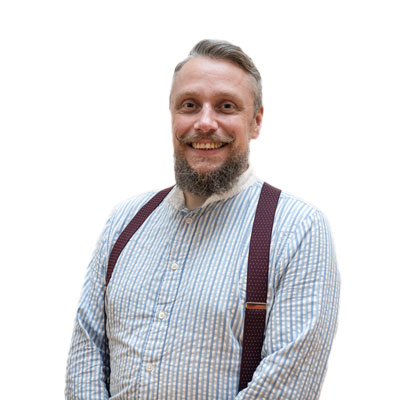
Dennis Bach Jensen
Demonstrating Technician
What Our
Graduates Do
Graduates from this course will have the skills to work as costume practitioners in a range of performance areas. The course's focus on developing a comprehensive costume realisation practice within a realistic working environment equips you to take on a variety of roles in the industry. You will also acquire key research skills enabling you to contribute academically to the dynamic costume research community.
Yihui Shi (2021)
Designer in a British equestrian costume company in Shanghai, where she designs, researches and develops fabrics.
Connor Sullivan (2022)
Costume designer and technician who is costume shop manager at the Metropolitan State University of Denver, Colarado. Leads team responsible for the costume construction process for productions by the Department of Theatre and Dance.
Educational qualifications are important but limited in what they can tell us about you.
Your natural ability, your fit with what and how we teach, your growth and your potential are also key factors in our admission process. We can’t evaluate these solely on your educational achievements, so no matter which course you are applying for, we look for the following attributes on your application and at the interview stage.
Additional Costs
As part of this course, there are likely to be some additional costs that are not included within your tuition fees. Many of these are optional.
Equipment
We understand that most students have to work to a very tight budget so we have limited the required tools to those that are absolutely essential for you to be able to start work here. Items you are likely to need will include a pattern master, spiky tracing wheel, a good set of drawing pencils, tailor’s chalk, sharpener, eraser, variety of needles, a thimble, straight pins, dressmaking scissors, paper scissors, snips, an unpicker and a tape measure. We recommend that you budget around £250 for equipment and supplies during the year.
At the very end of the course you are required to create a professional standard portfolio and there are inevitably printing and binding costs associated with this task.
Trips and training courses
As part of the various modules on the programme, some class trips may be offered to help support your learning. Some of these will form part of the curriculum but most will be important additions to your work. Some trips may be free or subsidised but you may be required to cover some costs yourself. Please allow up to £100 for these throughout the year.
Seeing shows
You should see live performances as often as you can. This is not compulsory, but it will help your development as a costume maker. Theatre visits are not covered by your tuition fees, so you'll need to cover these costs yourself. We are occasionally offered a limited number of free or discounted tickets for shows in the city. We also encourage you to see LIPA shows and offer discounted student tickets to make this as affordable as possible. Every year, we organise trips to theatres in Manchester and ticket and travel costs need to be met by each individual.
Additional Costs
As part of this course, there are likely to be some additional costs that are not included within your tuition fees. Many of these are optional.
Equipment
We understand that most students have to work to a very tight budget so we have limited the required tools to those that are absolutely essential for you to be able to start work here. Items you are likely to need will include a pattern master, spiky tracing wheel, a good set of drawing pencils, tailor’s chalk, sharpener, eraser, variety of needles, a thimble, straight pins, dressmaking scissors, paper scissors, snips, an unpicker and a tape measure. We recommend that you budget around £250 for equipment and supplies during the year.
At the very end of the course you are required to create a professional standard portfolio and there are inevitably printing and binding costs associated with this task.
Trips and training courses
As part of the various modules on the programme, some class trips may be offered to help support your learning. Some of these will form part of the curriculum but most will be important additions to your work. Some trips may be free or subsidised but you may be required to cover some costs yourself. Please allow up to £100 for these throughout the year.
Seeing shows
You should see live performances as often as you can. This is not compulsory, but it will help your development as a costume maker. Theatre visits are not covered by your tuition fees, so you'll need to cover these costs yourself. We are occasionally offered a limited number of free or discounted tickets for shows in the city. We also encourage you to see LIPA shows and offer discounted student tickets to make this as affordable as possible. Every year, we organise trips to theatres in Manchester and ticket and travel costs need to be met by each individual.
View the programme specification on LIPA's course catalogue


 Find us on Insta
Find us on Insta